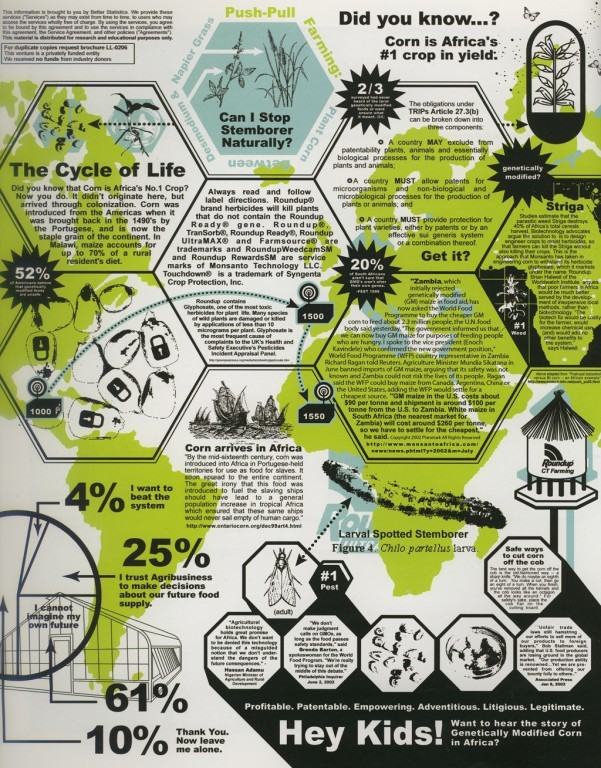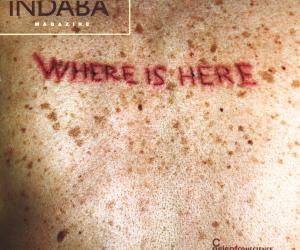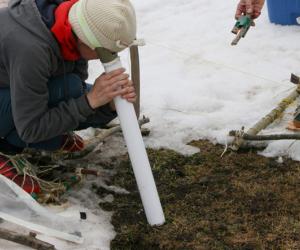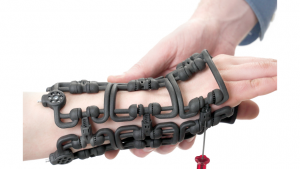First Published in

"Before there were any representations of man or of plants, designs of animals appeared [on cave walls], and with them confused ideas of religion and magic with which they are so closely associated." But we no longer live in caves; and our ideals are more prosaic. We want more cow; more milk - less spirit.
Which might explain rBGH. Developed by Monsanto, the large multinational agro-chemical company that created the lethal herbicide Agent Orange, biweekly injections of recombinant Bovine Growth Hormone (rBGH, also known as BST) boosts milk yields by between 10% and 15%. Somewhat controversially, the US Food and Drug Administration approved rBGH for use on November 5, 1994. rBGH, Monsanto's first genetic engineering product, is currently licensed for use in Mexico, the United States and South Africa. Consumers in many countries, however, oppose rBGH - not only because of its possible public health impacts (cancer and premature pubescence in girls), but also due to animal-welfare concerns (foot and reproductive disorders). The European Union has imposed a moratorium on its use in the EU, and Canadian regulators have rejected Monsanto's request for its approval.
How Tolerant Are You?
Thomas Müller
Hate and intolerance are a daily threat to society. Communicating the reverse, tolerance, presents contemporary designers with a challenging task. In the words of the First Things First manifesto, it requires designers to use their problem-solving skills to confront a social ill that requires non-reactive reformation.
Tolerance.org, a web project for the Southern Poverty Law Center (SPLC), offers a good example of one possible approach. Razorfish was approached by the SPLC to build an interactive educational website that would reach a diverse audience and create an open forum for dialogue on tolerance. The SPLC requested that the site be equipped with the ability to supply current news and information about tolerance and hate issues across the US, while also providing online resources for specified audiences such as parents, teachers and children.
Through the application of proven user-centric design techniques, the Razorfish team developed a site that not only communicates the SPLC's brand message, but also speaks directly to the organizations target audience. The navigation, information architecture, site hierarchy, and content, are all supportive of the site's primary goals.
The various site areas also allow visitors to actively participate in various defined communities. For example, the "Do Something" area provides the participant with simple ways to help fight hate, and includes a quiz that asks: "How tolerant are you?" Site features include a database-generated list and map of human rights organisations; a collage consisting of art that children can upload to the site; as well as an interactive version of the SPLC's Civil Rights Memorial. This gives visitors the ability to connect the people and events from the US's civil rights movement.
The International Academy of Digital Arts & Sciences recently named Tolerance.org the Best Activist Site at the 6th Annual Webby Awards, an award event hailed by The Wall Street Journal as a celebration of "sites that pave important paths to the Internet's next phase". According to Tiffany Shlain, founder and director of the Webby Awards, "this year's winners are setting the standard for the Web, and transforming the way we live."
Thomas Müller is creative director of Razorfish, a digital media company based in New York
Unnatural capitalism
Josh On
"Instead of a conscious and rational treatment of the land as permanent communal property, as the inalienable condition for the existence and reproduction of the chain of human generations, we have the exploitation and the squandering of the powers of the earth." Karl Marx
Companies are presently falling over one another in a bid to ally themselves to the idea of sustainable development. In his book, Ecology against Capitalism, John Bellamy Foster critically engages the corporate belief that capitalism is capable of driving an environmental recovery programme.
Author of The Vulnerable Planet and Marx's Ecology, Foster shows how capitalist competition prohibits rational measures that need to be undertaken in order to reverse the damage that human activity is inflicting on our environment. Even moderate reforms such as the Kyoto Treaty have been rendered redundant by governments representing
their national corporate interests.
Foster examines the treaty, looking at its original aims to reduce emissions back to 1990 levels, a humble and somewhat token goal given the estimations of the drastic reductions that would be needed to stave off the greenhouse effect behind global warming. Foster is however not content to solely point out the contradictory words and actions of the world's corporate and political leaders, he also looks at a possible way forward. He calls for activists concerned with the environment to see the systematic roots of the destruction in the profit system itself:
"From an eco-socialist perspective there is no difficulty in seeing that the rapid destruction of old-growth forest is not about owls versus jobs but about ecosystem versus profits," he writes. "We must therefore find our way to a more rational economic and social formation, one that is not based on the amassing of wealth at the expense of a humanity and nature, but on justice and sustainability." The cost of the exploitation of nature cannot be artificially inserted into the capitalist equation, with all the good will of its participants. The fact is that it is a competitive system that rewards those who exploit with the most efficiency. John Bellamy Foster's book offers a provocative read for anyone who believes that the crisis can be solved pragmatically within the confines of a capitalist system. It is also a great primer for those wishing to understand the ecological nature of socialist thought.
As Foster argues, the only force than can stop capitalism's competitive bent is human labour, the conscious component of that which exploits. It is our unified resistance to the plundering of nature and humanity in the name of profit that will provide a solution to the social and environmental crisis we face today.
Josh On, of Futurefarmers, is co-creator of www.theyrule.net, a launch pad for investigating corporate power relationships in the USA. Born in Christchurch, New Zealand in 1972, he currently lives in San Francisco.








